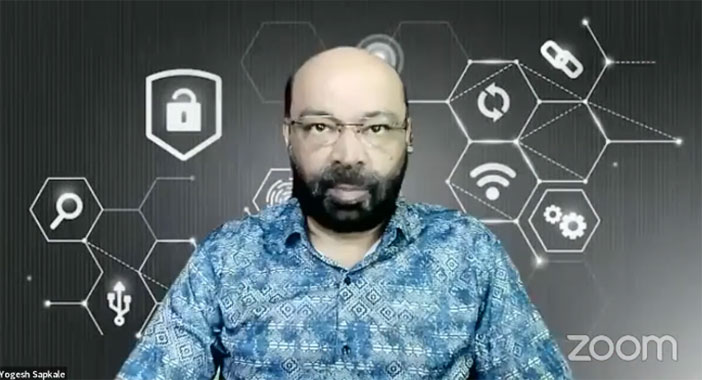
In the realm of digital security, safeguarding your passwords is paramount. According to Yogesh Sapkale, deputy editor of Moneylife, passwords serve as your primary defense against cyber threats. He emphasises the importance of not writing down passwords or relying solely on password managers, which can themselves be vulnerable to hacks, as recent incidents have demonstrated. Instead, he advocates for mnemonic techniques to recall passwords easily, even those that are complex, by deriving them from memorable phrases.
In today's increasingly digital landscape, fraudsters continuously evolve their tactics to exploit unsuspecting users. They capitalise on human vulnerabilities, enticing individuals with promises of lottery winnings, job opportunities or other lucrative schemes. Alternatively, they prey on fear, masquerading as bank officials or service providers to coerce individuals into divulging sensitive information such as card details, OTPs, or UPI IDs.
During the webinar organised by Moneylife Foundation, Yogesh Sapkale cautioned against disclosing personal details to anyone, stressing that such actions can jeopardise one's hard-earned savings through fraudulent activities. He highlighted phishing as a prevalent tactic, where fraudulent emails or messages mimic legitimate sources but are designed to extract personal information through deceptive links.
The session further delved into common scams such as KYC frauds, electricity scams, investment scams, online shopping frauds, sextortion, matrimony scams and fake crowd-funding schemes. Mr Sapkale provided insights into identifying fraudulent messages, emails, links, websites, apps and software. He emphasised the importance of verifying authenticity through headers, security certificates and other indicators before clicking on links or forwarding messages, as malicious links can install spyware or viruses compromising sensitive data.
Moreover, Mr Sapkale strongly advised against responding to requests from unknown callers or downloading apps suggested by unfamiliar sources. He underscored the necessity of installing anti-virus software to protect against viruses, malware, ransomware, and remote access threats.
In the event of falling victim to fraud, he outlined steps to take, including lodging complaints with relevant authorities and following up with higher authorities for resolution. The interactive session concluded with a Q&A segment where attendees on Zoom and viewers on Facebook and YouTube engaged in discussions.
For those interested in further resources on fraud prevention, Yogesh Sapkale's columns on Moneylife.in provide ongoing updates and insights. As digital threats continue to evolve, staying informed and proactive remains crucial in safeguarding personal and financial information against cybercriminals.
A video recording of the session is available on our YouTube channel:

